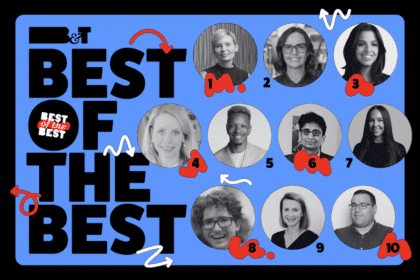TikTok is set to be the next target for the News Media Bargaining Code after Meta spectacularly announced that it would not be renewing its deal on Friday.
Assistant Treasurer Stephen Jones has said that while little attention was paid to TikTok at the time the code was introduced by Scott Morrison’s government, it has become an increasingly important news platform for Australia’s younger generation.
“There wouldn’t be an 18-year-old who didn’t have a TikTok app on their mobile phone today,” Jones told reporters. “And you talk to your kids, most of them consume most of their news through an app like that.”
Jones also added that he and Communications Minister Michelle Rowland had contacted TikTok weeks ago about the deals.
“We believe that they should be entering into the bargaining framework as well,” he said before adding that doing deals with publishers had not entered “[TikTok execs] thinking.”
The company had to change its thinking, Jones told The Australian Financial Review, “to stop seeing content producers as sources of revenue and start thinking of them as necessary expenditures”.
TikTok says that it has some 8.5 million monthly users in Australia, or around a third of the country, but that it is an entertainment platform, rather than a news platform. Federal data from 2022, on the other hand, shows that its usage as a news platform is increasing with around 10 per cent of respondents using it to find news. Most large publishers have TikTok accounts for disseminating news.
A TikTok spokesperson said that it had “partnerships with many sporting codes, lifestyle, music and comedy partners and help elevate this type of content as that is what our community enjoys.
They added that “Unlike other platforms, we do not allow news articles to be linked, or aggregate news content, instead we rely on our community to make video content.”
That Albanese and the rest of his government are up in arms over Meta’s decision and are trying to expand the News Media Bargaining Code should not be a surprise. It shows publishers that the government is on their side, while it also demonstrates a fight against the supposed globalisation of news that might appeal to many voters.
Speaking to The Australian about Meta’s decision, the Prime Minister said: “We’re very concerned with this announcement… It is absolutely critical that media is able to function and be properly funded.”
“We will consider what options we have available and we will talk to the media companies as well.
“The idea that one company can profit from others’ investment, not just investment in capital but investment in people, investment in journalism is unfair. That’s not the Australian way.”
Reaction from the media sector to Meta’s decision has been damning, as well. News Corp chief executive Robert Thomson called Facebook’s assertion that just three per cent of usage on its platform relates to news “preposterous.”
“It’s disappointing when you look at Facebook suggesting for example, that three per cent of usage relates to news. Well, that’s obviously a fiction, a preposterous figure. I mean how much discussion is there around news?” said Thomson, speaking at a Morgan Stanley conference overnight.








